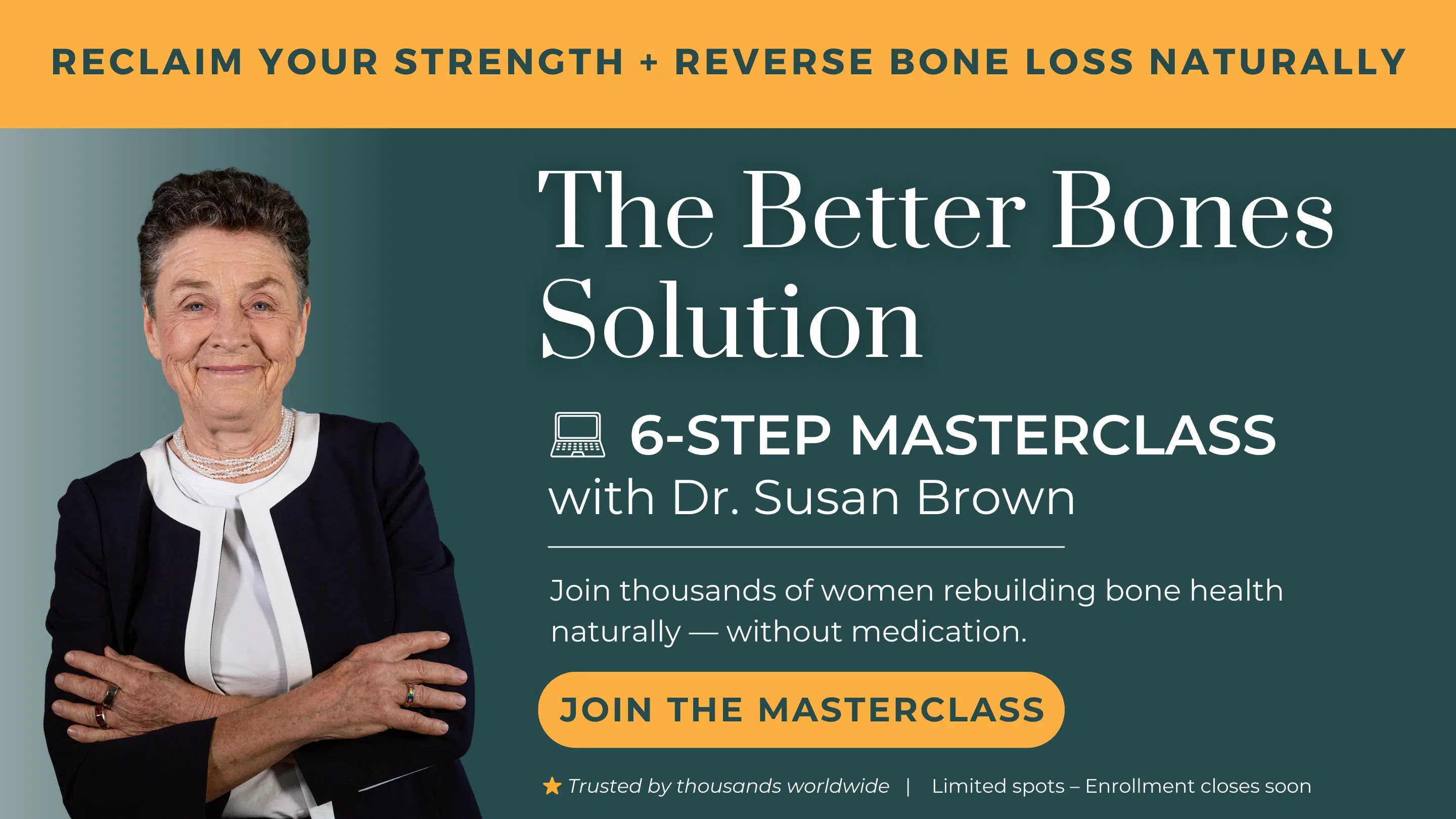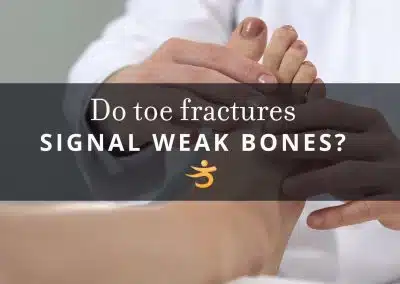Rethinking osteoporosis

Most women aren’t aware they have other choices — because their doctors don’t know what those options are, and the big drug companies certainly aren’t going to tell them!
The first thing you should consider before filling that prescription is that you have a right to know all of your options — as well as the whole story about that drug you’re being asked to take. As someone who has studied the effectiveness of a natural approach to bone health for more than 20 years, here are five crucial reasons why bone drugs should be your last resort for osteoporosis, osteopenia or fear of bone loss.
1. You’ll put your bones at long-term risk.
Bone drugs have troubling side effects that can significantly affect your bone health, especially when used over time. One troubling side effect is seen with bisphosphonate drugs. While they may halt bone breakdown in the short term, after about a year, these bone drugs also halt bone building — leading to brittle bones that may bemore susceptible to fracture, not less. How’s that for irony?
2. You’ll also face risks to your whole body.
Serious consequences like stomach irritation, heighten risk of esophageal cancer, blood clots, leg cramps, vision changes, nausea, vomiting, constipation… for a complete look at thedangerous side effects of using bone drugs long-term, I’ve developed this chart. These side effects are critically important to consider, especially if you’re being asked by your doctor to take bone drugs for may be likely normal bone loss or even as prevention.
3. Bone drugs produce few lasting results.
Popular bisphosphonate bone drugs “work” by temporarily creating bone mass from drug molecules, but they don’t offer lasting results. Based on my experience, I’ve learned that just because bones may look denser on a bone scan it doesn’t necessarily mean they are measurably stronger. What’s more, the recommended limit for taking bone drugs safely is just five years, at which time any “benefits” of bisphosphonates disappear.
4. The U.S. Surgeon General recommends natural approaches first.
When it comes to treating patients with osteoporosis and osteopenia, guidelines from the Surgeon General of the United States state that improvements to dietary and exercise habits are the first steps your physician should recommend, followed by investigation of potential underlying causes of bone loss. The report goes to say the final step — the last resort — is to use bone drugs – and only in cases of osteoporosis. I couldn’t agree more!
5. Your doctor may not truly understand what’s best for you.
Unfortunately, I don’t see many conventional physicians following the Surgeon General’s guidelines. They try to “fix” the problem immediately, and as a result, too many women are automatically prescribed bone drugs rather than being offered natural and effective options. You have a right, and even the obligation, to decide what is best for you and your body!
Common causes of bone loss – how to address them naturally
I’ve found that for many women, the underlying cause of their bone loss can be effectively addressed by working with Nature and the body’s own healing capabilities. Here are a few of the most common causes for you to consider:
Cause of osteoporosis and bone loss |
How the natural approach works |
| Inadequate nutrients can cause your body to steal the minerals you need from your bones’ reserves. | Even a perfect diet may not provide your bones with enough nutrients, so considersupplementation for optimal bone health.For example, getting adequate vitamin D can reduce fractures as much as – or even more than – drug therapies. |
| An acid-forming diet causes your body to release buffering mineral compounds from your bones that should instead be safeguarded for your future bone health. | An alkaline-forming diet with fresh vegetables, nuts, fruits and adequate protein helps keep buffering minerals in your bones where they belong. |
| Chronic stress increases your production of the stress hormone cortisol, which is extremely damaging to your bones. | Minimize your stressors — both physical and emotional — through self-care activities such as exercise, meditation or relaxation, to support your health and to feel calmer. |
| Lack of weight-bearing exercise leads to muscle and bone loss. | Exercise halts bone loss because bones strengthen in response to the strain put upon them. Doing something as simple as walking 20 minutes per day can reduce your fracture risk. |
What’s causing your bone loss?
There’s a lot of fear and anxiety around an osteoporosis or osteopenia diagnosis. To help you understand more about your true risk for bone loss and how a natural approach can help without the risks and side effects of drugs, take our exclusiveFracture Risk Assessment. Remember, you have a right to explore all your options, and to do what is right for you.









